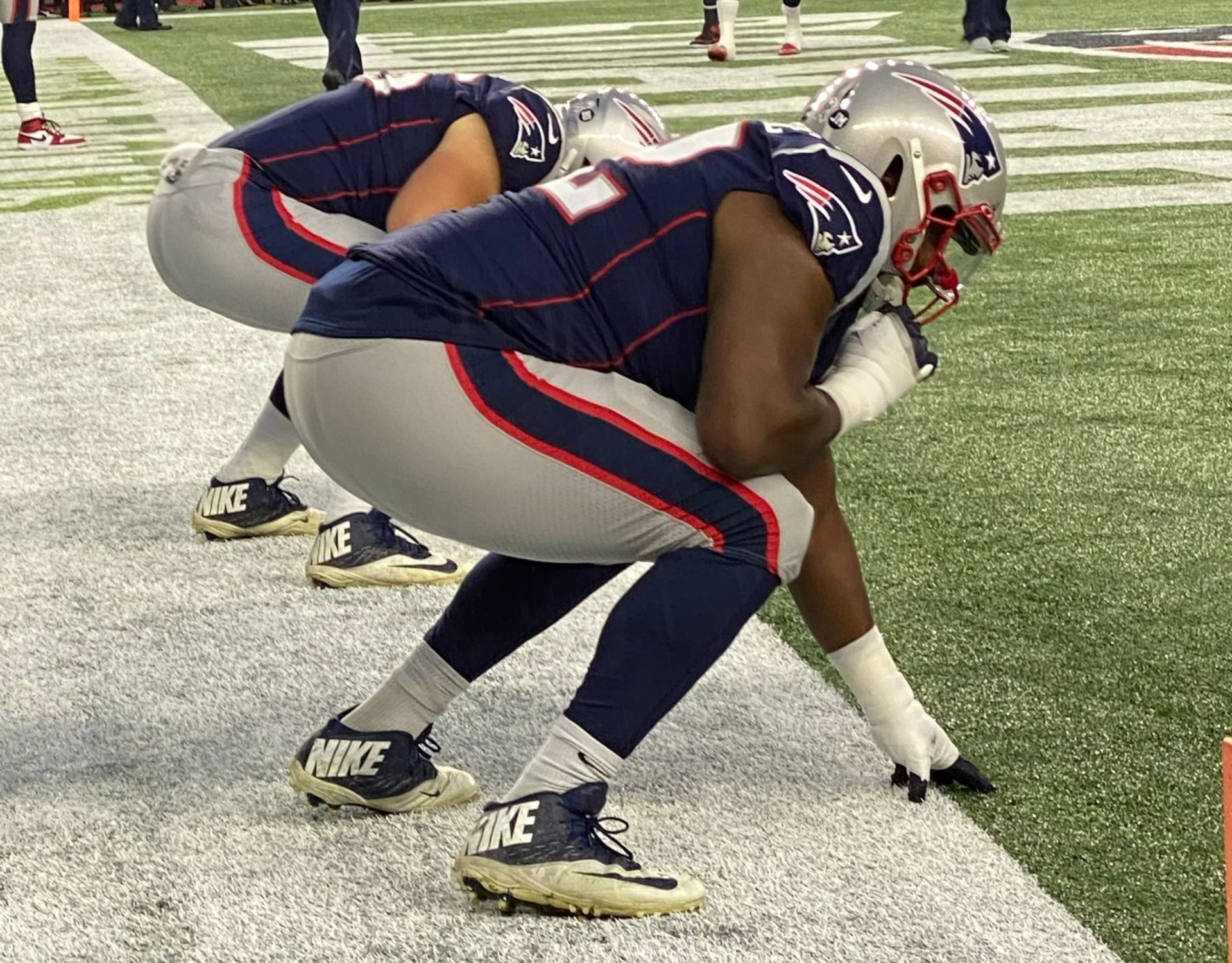
Photo by Stephan Coudassot | Unsplash
On September 21, 2022, the Washington Post published a massive 13,400-word article entitled “How the NFL Blocks Black Coaches.” It points out that there are just 3 Black coaches today out of 32 teams, less than 10%, even though about 70% of the players are Black. While the article does not explicitly accuse the team owners of racism (in fact, that word is barely used in the article at all), it would be difficult to conclude that the explanation for this huge disparity was anything other than racism. If the disparity is due simply to racism, I wondered whether the same dynamic which exists between owners and their coaches might also apply to the relationship between coaches and their players, and specifically their quarterbacks. According to the New York Times, “about 70%” of NFL players are Black, so we will use that figure as a measuring stick when considering the percentage of position players who are Black.
If 70% of NFL players are Black, then absent external factors, it would stand to reason that about 22 of the 32 quarterbacks would be Black. However, using 2022 season-opening starting QBs as a metric, only six are, or less than 19%, which is higher than the average number in recent years. These six are Lamar Jackson, Justin Fields, Deshaun Watson, Geno Smith, Jameis Winston and Jalen Hurts. An additional three are bi-racial, having one White parent and one Black parent (Patrick Mahomes, Dak Prescott, and Trey Lance) and two are multi-ethnic, with one Black parent (Kyler Murray’s mother is Korean-American and Russell Wilson’s mom is Native American). Tua Tagovailoa is Samoan. Nineteen starting quarterbacks in 2022, or nearly 60%, are White.
So, there is clearly a similar racial underrepresentation at the quarterback position as with head coaches. How do we explain this? We can never know the answer to this question for certain, in part because, if racism is all or part of the explanation, that is a mindset. Still, it is hardly surprising that some would speculate about this.
So let’s consider some potential explanations, even though none seem very persuasive.
1. Some NFL coaches dislike Black players. Under this theory, coaches are willing to sacrifice success just to avoid placing Black players in certain positions. This is absurd on its face. This would require virtually a KKK mentality. Coaches would sell their souls to the devil if it would help them win more games. More success on the field boosts their longevity, their salaries, and their legacies. We can put the chance of this one at 0%.
2. Some NFL coaches secretly or subconsciously still have an Al Campanis mindset. On April 8, 1987, Los Angeles Dodger general manager was interviewed by Ted Koppel on the ABC show Nightline. Koppel asked Campanis why, at the time, there had been few black managers and no black general managers or owners in Major League Baseball. Campanis’s reply was: “I truly believe that they may not have some of the necessities to be, let’s say, a field manager, or, perhaps, a general manager. … How many quarterbacks do you have that are Black?” Koppel gave Campanis several opportunities to clarify (“Do you really believe that?”) or back down from his remarks. Instead, Campanis doubled down on his views, suggesting that African Americans “certainly are short” on individuals with strong decision-making capabilities. Campanis was fired less than 48 hours later. Under the “Campanis theory,” some NFL coaches don’t want to put Black players in certain positions such as QB because they secretly share Campanis’s view that Black players may not have some of the “necessities” to play these positions.
While it is impossible to know what is in the heads and hearts of individuals, I would put the chance of the Campanis theory being true in 2022 as low as well. As discussed below, quarterbacks who are not White have had enough success on the field that it is difficult to believe that any NFL coaches today truly question the ability of any player of any race to succeed at QB, which leads us to the next possible explanation.
3. It is perceived that Black quarterbacks don’t succeed on the field. For all of the thorough detail and extensive empirical data in the WaPo article, the authors neglected to consider the one statistic which may be the most relevant of all: the actual win-loss records of Black coaches. They did point out that, since 1990, Black coaches have been twice as likely as others to be fired after leading a team to a regular season record of .500 or better. While surely relevant, that statistic is not the same thing as a win-loss record. Nevertheless, they have done fine anyway, with a historical record of 1034-994. ‘
But what about Black quarterbacks? If it were the case that Black QBs had a poor win-loss record, that might be a plausible explanation, but that’s not the case. The six Black quarterbacks who were starting at the start of the 2022 season have a very respectable 128-114 lifetime record. Moreover, three Black quarterbacks have won MVP awards, including Lamar Jackson, who is now one of the top QBs in the league by any measure. Over the history of the league, that percentage is about .500, which of course is just the same as it would be for White players. So this potential theory for the discrepancy doesn’t pan out either. It should also be noted that the lifetime record of current biracial quarterbacks is off the charts: 220 regular season wins against only 100 losses, a truly impressive winning percentage of over 68%. They also have two Super Bowl wins to their credit, Russell Wilson for the Seahawks in 2013 and Patrick Mahomes for the Chiefs in 2019. As for playoffs, Black QBs have a lifetime record of 40-59, which is not great but should not outweigh the totality of their regular season performance over the years. (Opening day Black QBs have never won a Super Bowl, although Doug Williams did win for the Redskins in 1988, having stepped in for the injured Jay Schroeder starting in the last two games of the season.) In any event, the bottom line is that Black QBs have not had less success on the field over the course of history (or currently) than White QBs and thus, this theory seems like an unlikely explanation for the discrepancy.
4. The college pipeline is too thin.
Regardless of percentages, pro scouts can afford to be incredibly selective when it comes to picking college athletes in the draft. There are 131 schools in the NCAA Division I Football Bowl Subdivision (FBS), formerly known as Division I-A, the highest level of college football in the United States. There are also 300 Division II schools and 450 Division III schools. There are about 74,000 college players total, and of this population, about 17,000 are draft eligible. . If we assume an equal distribution of positions, and since quarterbacks represent 1 out of 24 positions on the field (including kicker and punter), that would mean that there are roughly 700 draft-eligible QBs for the scouts to pick from each year. On average there are about 10 quarterbacks selected in each draft , out of a total draft class of 254. This means that the odds of even being drafted are only 1.6%, and of course, the odds of actually making the team are even lower than that.
Data is hard to come by on the issue of how many college QBs are Black. However, if we focus on the 25 college quarterbacks with the current highest efficiency rating (and thus perhaps those most likely to be drafted), about 33% of them are Black. In other words, a much higher percentage than in the pros.
If we assume that there are roughly 700 draft-eligible QBs and that about one-third of them are Black, that equals 233 potential draft picks. Recall that there are roughly 10 quarterbacks selected in each draft. What does all this mean when we crunch the numbers together? It means that pro scouts can be so choosy when looking to the college pipeline for Black quarterbacks, that it would be virtually impossible to conclude that the college pipeline is too thin Moreover, data shows that NFL scouts have no hesitation in drafting Black QBs
: Over the last 10 drafts, 11 of the 32 quarterbacks taken in the first round were Black (34.4%). This approximates the percentage of draft-eligible Black QBs and is certainly higher than the 19% who are currently starting QBs.
So where does all of this leave us? Is there another explanation for the similarly disproportionate low ratio of Blacks QBs in the NFL as Black head coaches aside from one of the above? While it is just as difficult to look inside the heads and hearts of NFL coaches as NFL owners, I would speculate that on some level, certain perhaps subconscious, the Al Campanis explanation may be in the mix somewhere, as unlikely as that may seem. Perhaps there remains a perception that an NFL QB can only be a great runner or a great passer, but not both, and if they are a great runner, maybe they can’t also be a great passer, and coaches would rather have a great passer if they had to choose. Of course, perception is not reality and some of the best passers have been Black, including those who are great runners, such as Lamar Jackson, Michael Vick, Donovan McNabb, Steve McNair, and Warren Moon. While it is true that Black quarterbacks do not have a stellar historical postseason record, that seems like a thin justification upon which to base discriminatory conduct given all the other countervailing evidence. Whatever the true explanation, the bottom line is that there should be more Black QBs in the NFL, just as there should be more Black coaches.

Peter Meltzer
Peter Meltzer is a lawyer in Philadelphia, specializing in commercial litigation, real estate and creditors’ rights. He is also an author about both legal and nonlegal topics, and has been a frequent guest on the Michael Smerconish program. His nonlegal books include: “The Thinker’s Thesaurus”, which has sold over 100,000 copies, “So You Think You Know Baseball? A Fan’s Guide to the Rules”, named one of the top baseball books of the year by ESPN, and books about the presidents of the United States and about rock and roll music from 1965-1975. His legal articles have been cited by courts from around the United States.






